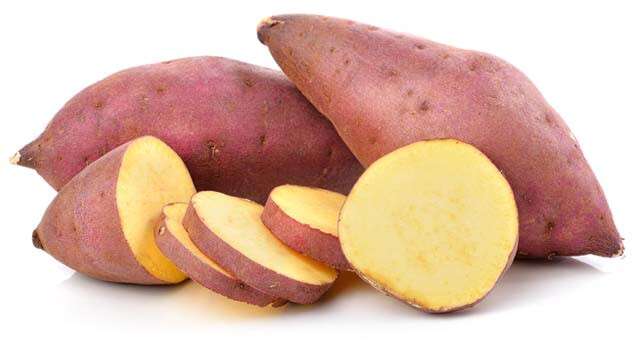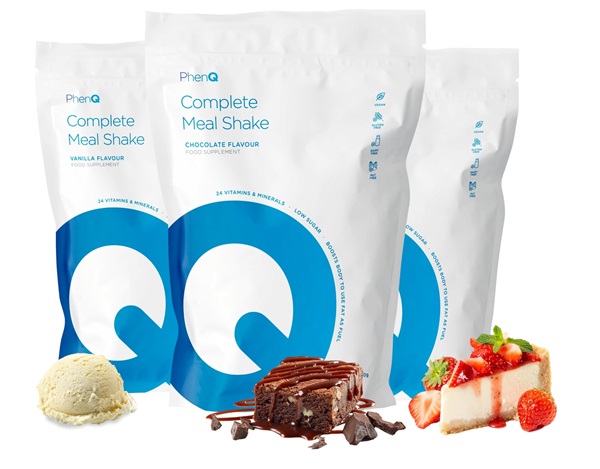High Carb Fruits and Vegetables That Are Actually Healthy
There has been a bad reputation surrounding carbs for a few decades. However, it is one of the essential nutrients for the body.
Carbs are the primary source of energy for the body; not only are they necessary for survival, but they also regulate different functions of the body.
Refined carbs offer little nutritional value; whole food carbs are the healthier choice if you want to add carbs into your diet.
The carbs found in junk food and other processed foods are unhealthy and are not helpful to the body. The carbs in whole foods are healthy and are fundamental to the body’s proper functioning.
Whether you are on a low-carb diet or not, completely ignoring carbs is not healthy. It can cause more problems to stop eating carbs entirely.
The stigma surrounding carbs is mainly due to refined carbs and their effect on the body. Eating the healthier version of carbs can be helpful even if you are on a specific diet. There are a lot of high-carb fruits and vegetables, which are listed below:

High-Carb Fruits That Are Healthy
Apples
As the saying goes, apples are one of the most nutritious fruits you can eat. Available any time of the year, they are cultivated almost everywhere in the world. Rich in vitamin C and other nutrients, apples are an excellent option for a high-carb fruit.
Some of the benefits of apples-
- Apples reduce cholesterol in the body, keeping your heart healthy.
- The consumption of apples also lowers blood pressure.
- The antioxidants in apple aid in cancer prevention.
100 grams of apples contain-
- 14 grams of carbs
- 52 calories
- 4 grams of fiber
Bananas
Bananas are another popular fruit that has good nutritional value and is available almost anywhere. They are abundant in vitamin C, B-6, and potassium.
Antioxidants are also present in bananas and have a high carb count, making them a very healthy source of carbs.
Bananas have many benefits to eating them-
- The potassium in bananas is good for keeping the heart healthy and regulating blood pressure.
- They have high fiber content making them good for the digestive system as well.
- Eating bananas make you feel full and keep your appetite satisfied.
100 grams of bananas contain-
- 23 grams of carbs
- 89 calories
- 3 grams of fiber
Pineapples
Pineapples are a tropical fruit that is delicious and juicy. They may have originated in the continent of South America. Rich in nutrients and antioxidants, pineapples are among the healthiest fruits you can consume with a high carb count.

The benefits to eating pineapples-
- The digestive enzymes in pineapples are helpful in digestion and keep the digestive system healthy.
- They improve the immune system and fight against inflammation.
- The anti-inflammatory nature of pineapples can fight against symptoms of arthritis.
100 grams of pineapple contain-
- 13 grams of carbs
- 50 calories
- 4 grams of fiber
Raisins
Raisins are grapes that have been dried. They can be eaten raw, cooked, and baked. Although raisins are high in calories and sugar, they are healthy to eat in moderation.
They improve the iron levels in our body, keep our bones strong, and help in digestion.
Some of the benefits of consuming raisins-
- The high fiber content in raisins makes them good for digestion and keeping the digestive system in good shape.
- The iron in raisins helps to keep our red blood cells healthy.
- Raisins have an abundant amount of antioxidants.
Healthy High-Carb Vegetables
Sweet potatoes
The starch-filled vegetable called sweet potatoes is filled with nutrients that are beneficial to the body. As the name suggests, they are sweet. They are of different varieties, but all of them are abundant in vitamins and minerals.

The benefits of eating sweet potatoes-
- They are believed to help improve the immune system because of the presence of vitamin A.
- They also benefit your vision and improve eyesight.
- The presence of fiber and antioxidants in sweet potatoes helps maintain the digestive system.
100 grams of sweet potatoes contain-
- 20 grams of carbs
- 86 calories
- 3 grams of fiber
Corn
Corn is a popular cereal grain. Although they have a terrible reputation for their high natural sugar and carb content, they are still very healthy. Vitamins, minerals, and many antioxidants are present in corn, making them an option you should not exclude.
The benefits to eating corn-
- They improve eye health because of the presence of lutein and zeaxanthin in corn.
- Corn helps in the prevention of colon diseases, such as diverticular disease.
- It is an excellent source of protein.
100 grams of corn contain-
- 21 grams of carbs
- 96 calories
- 2 grams of fiber
Beetroots
Beetroot is a vegetable that is filled with essential nutrients, fiber, and iron. Beetroots, along with their leaves, can be eaten either raw or uncooked, making them versatile.
They provide numerous health benefits, such as maintaining blood pressure and improving blood flow.

Some of the benefits of eating beetroot-
- Beetroots are great for lowering blood pressure because of the presence of inorganic nitrates.
- They increase stamina levels allowing you to work and exercise more.
- The betalain compounds in beetroot are anti-inflammatory.
100 grams of beetroot contain-
- 10 grams of carbs
- 44 calories
- 3 grams of fiber
Kidney beans
Kidney beans are a part of the bean family and also a vegetable. They are a significant source of protein, especially iron and magnesium.
They are eaten cooked because raw kidney beans can be harmful and toxic. There are multiple benefits to eating kidney beans because of their high nutritional content.
Some of the benefits of eating kidney beans-
- They help in the prevention of colon cancer.
- They are essential in the regulation of blood sugar levels.
100 grams of kidney beans contain-
- 8 grams of carbs
- 127 calories
- 4 grams of fiber
Ever since diets that prevent from consuming high carbs became popular, carbs have gotten a bad reputation.
Although high consumption of carbs can be unhealthy, they are still an essential nutrient and should be consumed regularly to maintain good health.
Healthy sources of carbs should not be put off the table and should instead be eaten daily. Vegetables and fruits with high carb content can still be beneficial.



